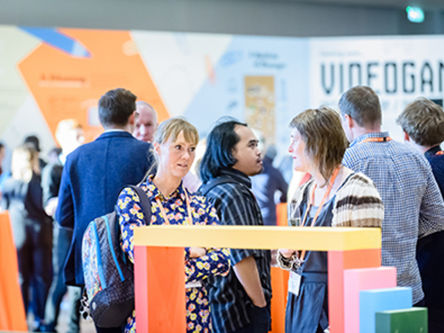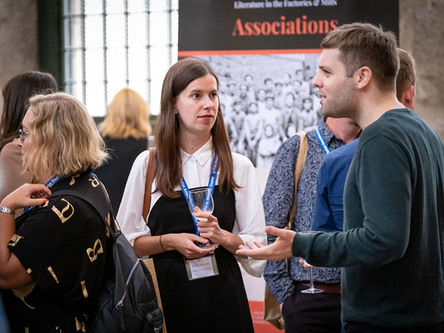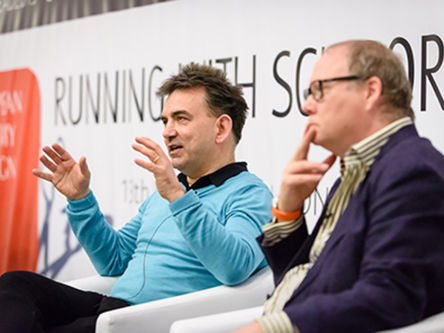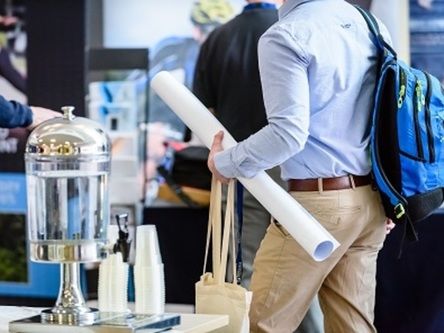In a world that feels increasingly fragmented, business events can provide a much-needed platform for meaningful connection.
By nurturing relationships and building dynamic networks, conferences and events can also be the conduit for ideas and solutions that transform the way we see and experience our world.
Dundee & Angus Convention Bureau’s Karen Tocher looks to the future of business events and how they can drive forward real and long-lasting social change.
From Covid to climate change, transformative opportunities and long-term solutions are being created through local, national, and international business events. And, here in the region of Dundee, Angus, Fife and Perthshire, we continually see the power of the conference stage to drive forward a collective response to some of the biggest challenges we face.
We are fortunate to be home to world leading academic institutions as well as a wealth of industry experts across health and care, eco innovation, creative industries, digital innovation, biomed innovation, food and drink, energy, engineering and manufacturing, sustainability, construction, space, technology, culture and tourism sectors and more. And this makes the region the ideal location for events looking to inspire innovation, inclusion, and collaboration as we strive to make change for the better.
Here are just a few reasons why business events can be the platform for effective and long-lasting societal change.
Leading by example
As we transition into a post-pandemic world, the benefits of digital technology to the events and conference industry have come to the fore. And while virtual conferences remain, the appetite for face-to-face interaction has understandably returned. The challenge for the sector has been to find the right balance to ensure productive interactions while encouraging social responsibility and environmental awareness.
Working with a dynamic hybrid model of virtual and physical events, conference organisers are now leading the way in delivering accessible events that also showcase best practices in sustainability.
The One Young World Summit is just one example of an event that has made the issue of climate change an essential part of its operations. From carbon offsetting and green partnerships to a clear single-use plastic policy and reducing meat in their event catering, this sustainability ‘charter’ underpins the summit’s objective of bringing together the world’s ‘most impactful young leaders to create a better world.’
There are many other ways an event organiser can minimise their event’s carbon footprint without reducing the impact of its programme or goals. If you are an event planner looking to reduce your environmental impact, then this informative article by Reset Connect is an excellent place to start.
Creating connections
Whether business or academic, the connections created at events can lead to long-term, potentially life-changing collaborations. And this real-time opportunity to network and build new working relationships goes beyond the event itself.
Dundee & Angus Convention Bureau’s (DACB) Pathfinders initiative is just one example of a conference destination that proactively connects today’s leading academic and industry leaders. The collaborative approach of Pathfinders also helps to bring together innovative thinking and action that benefits the wider community at home and around the world.
DACB Pathfinder partner, the James Hutton Institute, demonstrates the power of connection and influencing change for the better. The Institute has grown a significant partnership with Utah State University, in which they collaborate on agricultural research that focuses on climate change.
From joint international research projects to creating employment or local investment opportunities, our Pathfinders illustrate how business events can be instrumental in making connections that change lives and communities for the better.
Spotlighting solutions
A conference or event can also be the stimulus for practical solutions to local as well as global issues. And it’s not just the conference’s stage that can put a spotlight on new ways forward.
Many DACB events such as Landscape Management for Functional Biodiversity conference have incorporated a ‘Farm to Fork’ approach by working with local producers to bring the reality of ‘food miles’ to life.
Meanwhile, Save our Scottish Seas and the Marine Conservation Society (MCS) encourage visiting conference delegates to participate in one of their beach cleans to help reduce plastic pollution around the Scottish coast.
These are just two seemingly simple, practical actions incorporated into an event’s wider programme that support individuals, communities, and organisations to embrace sustainable behaviour change.
Amplifying voices
Finally, a business event can become a powerful virtual platform, not only for the organisations, institutions and delegates involved but for the people and communities at home and around the globe.
Climate change, social inequalities, food poverty, and human rights – events and conferences are ideally placed to advocate for those directly affected by the societal and environmental issues we face.
And by bringing together the academics, the business leaders, the innovative thinkers to speak, learn, share, and collaborate, an event not only facilitates solutions but helps to amplify the voices of those who stand to benefit.
Ultimately, that is the long-lasting legacy of a business event as it works to help change tomorrow for the better.
-
Organising
Organising a conference
With a proven track record of staging world-class conferences, we deliver an exceptional delegate experience

-
Attending
Attending a conference
A warm Scottish welcome awaits our delegates from around the world

-
Impact
The impact of Business Events
Business Events facilitates and supports essential exchanges, integral to not only economic advancement, but societal development as a whole

-
Pathfinders
Pathfinders
Advancing social and economic progress for Scotland and the region of Dundee, Angus, Fife and Perthshire

-
Partners
Bureau partnership
Work with us to deliver outstanding experiences

-
News


